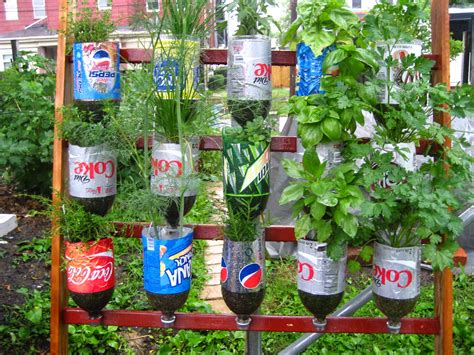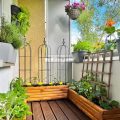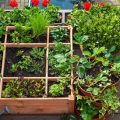Creative Ways to Use Recycled Materials for Your Balcony Garden
Gardening in small spaces, especially on a balcony, can be both rewarding and eco-friendly. By integrating recycled materials into your gardening, you can reduce waste, save money, and cultivate a sustainable, thriving green space. This guide provides practical tips on how to use recycled materials for balcony gardening, while also discussing the broader impacts of sustainable practices and DIY projects.
Introduction
Urban gardening, particularly on balconies, offers an excellent opportunity to turn limited spaces into lush, productive areas. Balcony gardening not only brings nature into your home but can also be done sustainably by reusing everyday items. Recycling reduces the need for new materials, contributing to environmental conservation. This guide covers essential techniques for incorporating recycled materials into your balcony garden, ensuring a successful, sustainable, and creative project.
Key Concepts
- Recycling: The process of converting waste materials into new, usable items.
- Urban Gardening: The practice of growing plants in urban areas, often in small spaces like balconies.
- Container Gardening: A type of gardening where plants are grown in containers instead of in the ground, suitable for balconies.
- Eco-Friendly Practices: Methods that reduce environmental impact by using sustainable materials and resources.
- DIY Projects: Do-it-yourself initiatives that involve creating or modifying items, often using recycled materials.
Historical Context
Recycling in gardening is not a new concept. Historically, people have always found ways to reuse materials for gardening purposes. In World War II, victory gardens were often sustained using repurposed containers due to resource shortages. The modern movement of sustainable gardening gained traction in the late 20th century, coinciding with increased environmental awareness and urbanization. The balcony gardening trend, paired with eco-friendly practices, has grown exponentially as more people become conscious of their carbon footprints.
Current State Analysis
With urban spaces becoming denser, balcony gardens have emerged as a popular solution for people who lack access to traditional garden spaces. The integration of recycled materials, such as plastic bottles, old pallets, and containers, allows for more sustainable gardening practices. However, while many urban gardeners are eager to adopt eco-friendly practices, challenges such as space constraints and lack of knowledge about recycling options can hinder widespread adoption. Fortunately, the growing number of online resources and gardening communities is helping to bridge these knowledge gaps.
Practical Applications
There are numerous ways to creatively reuse everyday objects for your balcony garden. Here are some practical ideas:
- Plastic Bottles: Cut them in half to use as planters or create vertical gardens by attaching them to a wall.
- Old Tires: Paint and stack them to create layered planters for flowers or herbs.
- Pallets: Repurpose wooden pallets into vertical gardening racks or planters.
- Tin Cans: Use washed tin cans as containers for herbs or flowers. You can punch holes in the bottom for drainage.
- Egg Cartons: Use egg cartons as seed starters before transferring the seedlings to larger pots.
- Glass Jars: Reuse old jars as containers for small plants or for storing tools and seeds.
- Broken Pots: Instead of discarding them, broken clay pots can be used as drainage materials at the bottom of planters.
Case Studies
Several urban gardeners have successfully used recycled materials for their balcony gardens. Here are some examples:
| Gardener | Recycled Materials Used | Results |
|---|---|---|
| Amy, New York | Plastic bottles, wooden crates | Created a vertical garden with herbs and vegetables. Reduced waste and saved space. |
| Brian, London | Old furniture, tin cans | Repurposed furniture became a base for planters, and cans were used for small plants. |
| Claire, Sydney | Egg cartons, glass jars | Egg cartons were used as seed starters, and jars helped in organizing tools and seeds. |
Stakeholder Analysis
Different stakeholders are affected by balcony gardening, especially when recycled materials are used:
- Urban Gardeners: Directly benefit from reduced costs and environmental impact.
- Environmental Organizations: Support the reduction of waste and promote sustainable living practices.
- Local Communities: Benefit from improved urban aesthetics and increased green spaces.
- Recycling Companies: Experience increased demand for their services as more people engage in sustainable practices.
Implementation Guidelines
To successfully incorporate recycled materials into your balcony garden, follow these steps:
- Identify suitable recycled materials around your home, such as bottles, cans, and pallets.
- Clean and prepare the materials for planting, ensuring that they are safe and durable.
- Plan your garden layout based on the space available, considering vertical gardening to maximize the area.
- Choose plants that thrive in containers, such as herbs, succulents, and vegetables.
- Monitor your garden regularly, ensuring proper drainage and sunlight.
Ethical Considerations
Using recycled materials aligns with eco-friendly practices, but there are ethical considerations to keep in mind:
- Material Safety: Ensure that materials used are safe for plants and the environment. Avoid using items that may contain harmful chemicals.
- Sustainability: Consider the lifecycle of the materials. Reusing is beneficial, but you should ensure that items are not contributing to pollution.
- Resource Equity: Sharing knowledge about sustainable practices ensures that all communities can benefit from these initiatives.
Limitations and Future Research
While balcony gardening with recycled materials is effective, there are limitations. Not all recycled materials are suitable for gardening, and some may degrade quickly in outdoor environments. Additionally, beginners may find it difficult to balance aesthetics with functionality. Future research could explore new materials that are both eco-friendly and durable, as well as more efficient ways to implement vertical gardening in small spaces. Further studies could also investigate the long-term environmental benefits of using recycled materials in urban gardening.
Expert Commentary
Balcony gardening with recycled materials offers an excellent opportunity to combine creativity, sustainability, and practicality. As urban gardening becomes more popular, integrating eco-friendly practices can have a significant positive impact on both the environment and personal well-being. Experts suggest that focusing on both aesthetics and functionality will help in creating a garden that is not only beautiful but also highly productive.


